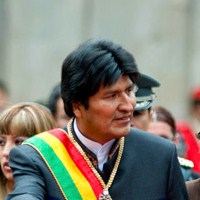Bolivian President Evo Morales’ successful push to clear the way for a potential third term in office has reinforced the fears of many observers who, ever since he was first elected president in December 2005, have lumped Morales in with the wave of populist, anti-democratic leaders in Venezuela, Ecuador and Nicaragua. Morales joined ALBA, the alliance of leftist countries assembled and underwritten by former Venezuelan President Hugo Chavez; he engaged in the time-honored tradition of leftist “yanqui” bashing; and he has whittled away institutional checks and balances on executive power.
But in important economic and political ways, Bolivia was and remains different from its ALBA allies.
For one, the Morales administration has been a far better steward of the economy. While Morales’ government nationalized gas fields in 2007 and assumed control over electricity and water concessions that had been privatized less than a decade earlier, not to mention telecoms and airports, the economy has grown at a respectable 4.7 percent over the past five years. Much of this is due to high demand for Bolivia’s natural gas and the Morales administration’s relatively pragmatic view toward international investment in the sector, despite the initial scare over nationalization.

